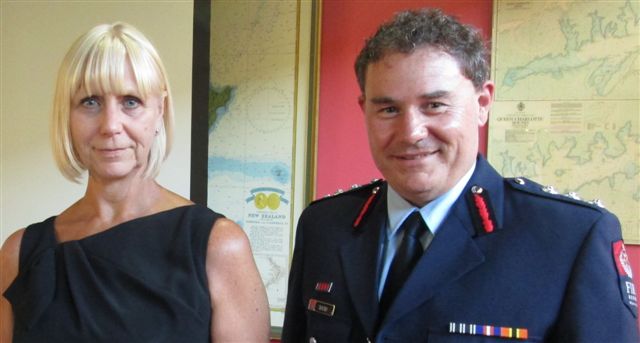New Zealand Fire Service
Dave Key - Area Manager

Dave has been in the Fire Service for 28 years, starting in Auckland and transferring to Wellington which is now his home. Over the last few years he has worked as an Assistant Area Manager in several roles at National Headquarters, Wellington. He has also worked as an Assistant Area Commander in the Nelson/Marlborough and Christchurch Fire Areas. In 2013, he was appointed to the position of Assistant Fire Commander in the Wellington Fire Area.
Dave’s presentation will cover:
- the role of the New Zealand Fire Service
- how the organisation is structured and managed
- the range of incidents they attend
- community fire risk management
- the Wellington fire area and Dave’s role within it
From Ladies to Disasters - How the Fire Service Serves New Zealand
Dave Key, introduced by Leonie James, spoke to Plimmerton Rotary about his role as Area Manager Wellington, New Zealand Fire Service.
This is a story about how the New Zealand Fire Service, with its enviable international reputation, assists all day and every day. It covers a multitude of tasks from helping a lady member of Rotary to responding to disasters, both natural and man-made.
An Act of Parliament established the modern Fire Service in 1975 with funding being provided by a levy on every non-life insurance policy written in New Zealand. The model is unique to this country in that, amongst its international peers, it is the only truly national service. This provides not only commonality of equipment across the country but also quick and efficient allocation of resources to meet the needs of major events. A recent example was the Christchurch earthquake where, within four hours, senior Fire Service staffs were being helicoptered there and shortly thereafter fire trucks began to arrive from outside Christchurch.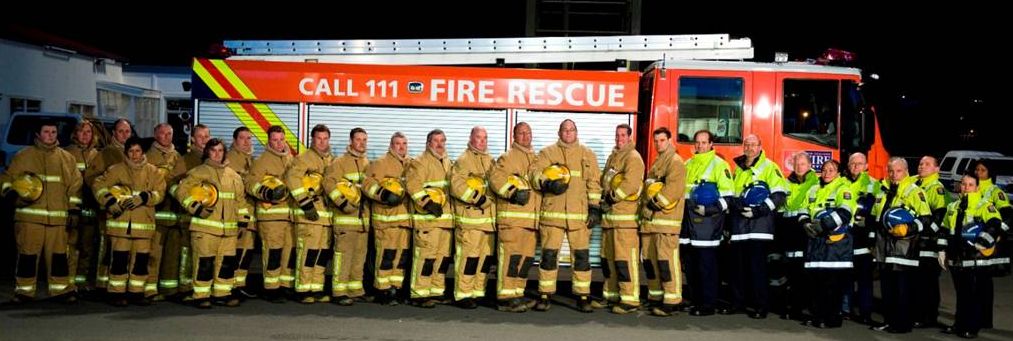
From a service with the mandate to prevent and eliminate fires, the role of the Service has expanded to meet community expectations to the extent that attending fires is no longer a major part of its work.
The broad statistics are interesting with 70,000 incidents being recorded each year, of which about a third are fire-related. Of the fires, around 3000 are house fires and 15-20 people die in these every year. Sadly 80% of these house fires occur in houses not fitted with smoke alarms.
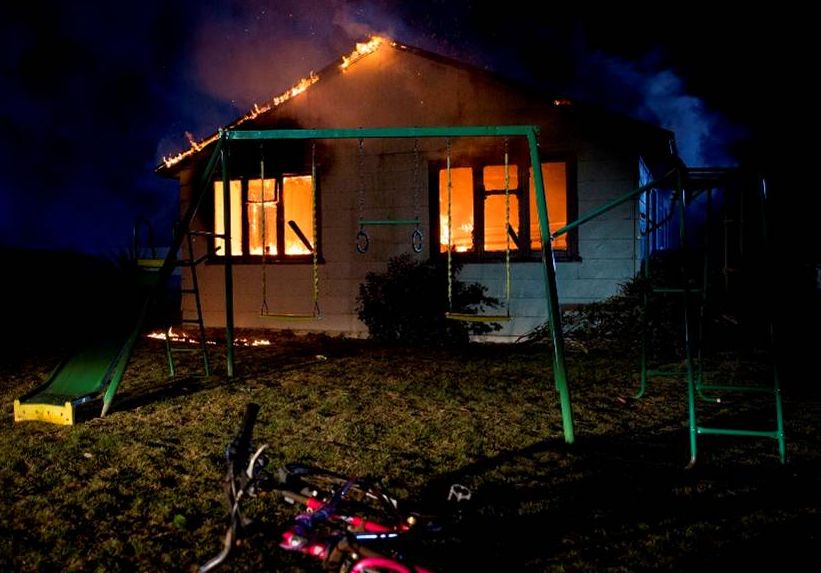
If you have ever wondered, there are 436 fire stations serviced by 800 red trucks in the country.Of real interest is that if you ever have to call for assistance from the Fire Service, their target is to be out of the door in a red truck within 90 seconds of your call and, if you live in an urban area, will be at your door within seven minutes 90% of the time.
Prevention, as in many things, is the first priority of the Service. However this must be a shared responsibility between each of us personally, the community at large and the Fire Service.
Now, the lady in the story. One of our members (who despite recounting the tale to our speaker, shall remain nameless) required help in determining what type of smoke detector she required for her house and so rang the Fire Service. In due course (not seven minutes) a fire truck arrived and three firemen (the fourth remained in the truck to respond to any call) came inside and gave very helpful advice on what was required and how it should be installed. In typical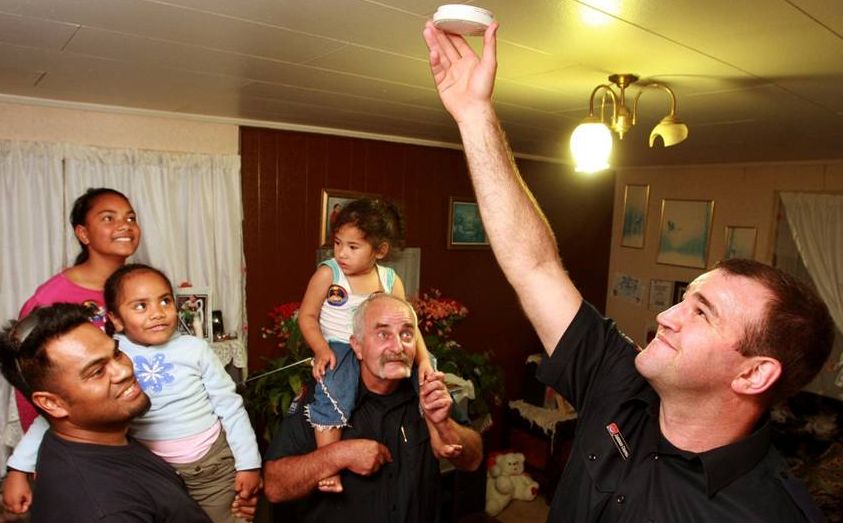 Rotary fashion a cup of tea was offered but the firemen elected to continue working and even offered to come back in six months time and change the batteries in the smoke detectors. Who else offers customer service like this, particularly when it just might be lifesaving?
Rotary fashion a cup of tea was offered but the firemen elected to continue working and even offered to come back in six months time and change the batteries in the smoke detectors. Who else offers customer service like this, particularly when it just might be lifesaving?
Dave Key made a strong point about personal responsibility and the need for smoke alarms. Have you one installed where appropriate in your house and if so when did you last change the battery?
Snippets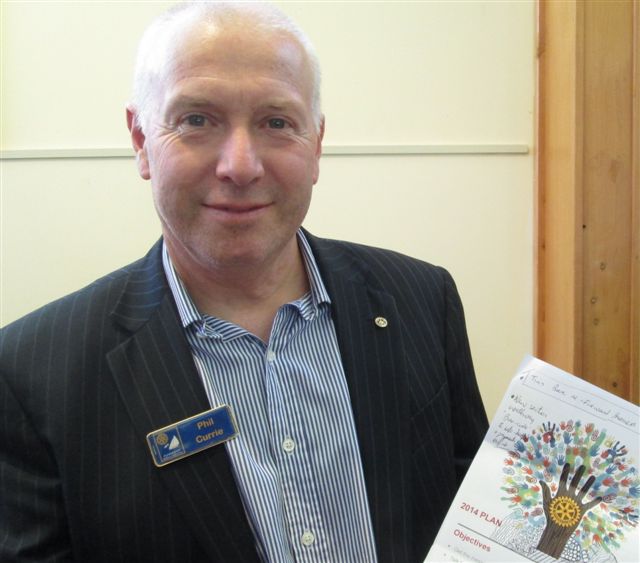
Phil Currie, Chair of the Communications Committee, informed us of the Rotary National Advertising Campaign for 2014. The information is in the attached Rotary 2014 Plan. We will be seeing and hearing more in the media.
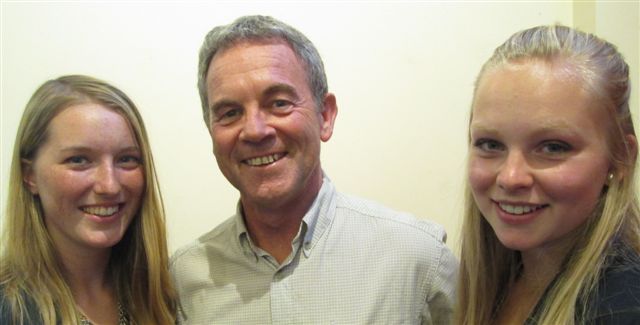
Maike brought along a visitor to the meeting – Sophia, who lives in the same town as she does in Germany and she is on a work and study exchange to New Zealand. John O'Connell and Keith Michael encouraged the club to continue to support the International Exchange programme.
Martinborough House Sauvignon Blanc – there are now just three cartons (of 12 bottles each) remaining at $170.00 per carton. Contact President Ron and Jenny 234 7657. The proceeds of the sale of this wine adds to our Rotary International contribution.
Polio Money Boxes will be collected in February.
Easter 2014 at Ruapehu. A lovely long weekend away with the opportunity of bringing along some grandchildren. Contact Peter Lillico - ph 233 1281 or email bplillico@xtra.co.nz

